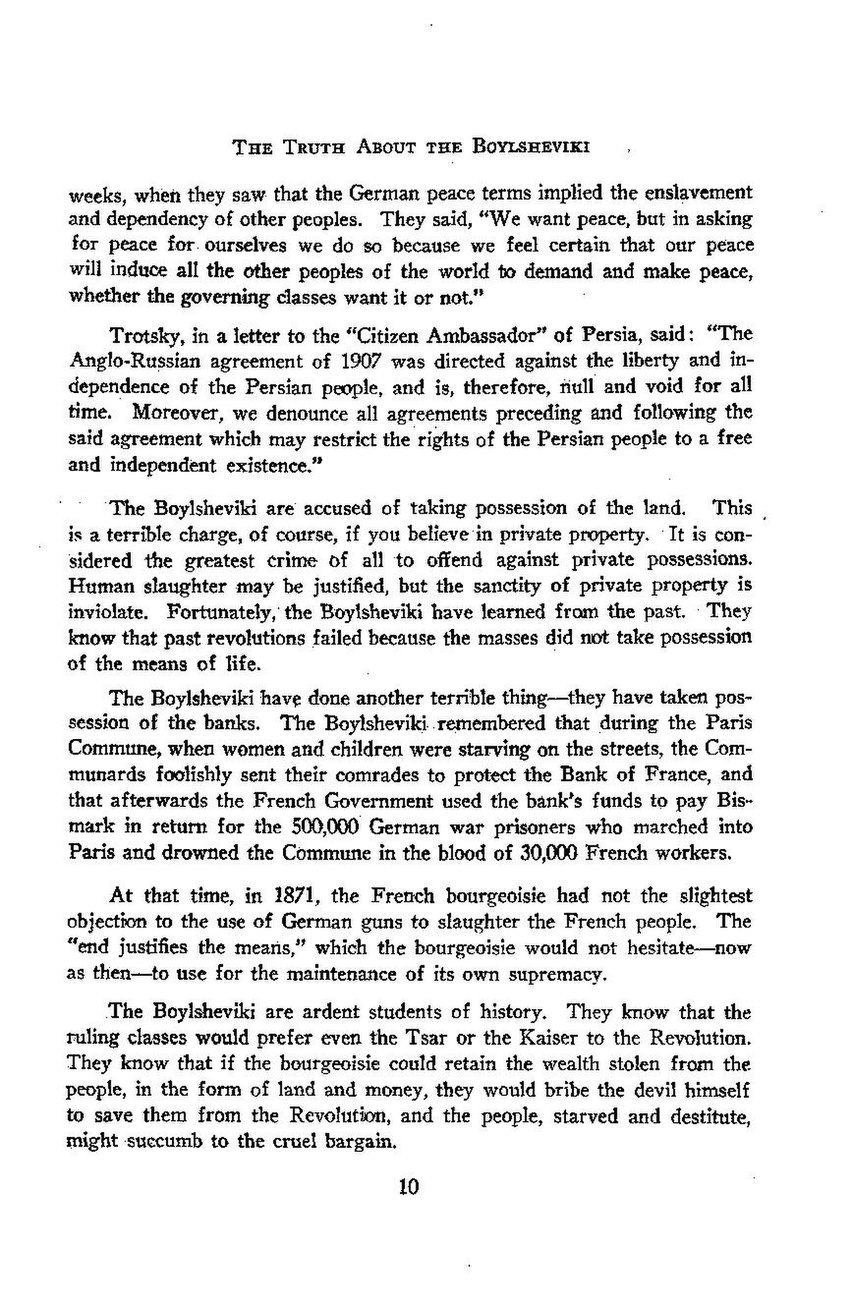The Truth About the Bolsheviki
weeks, when they saw that the German peace terms implied the enslavement and dependency of other peoples. They said, "We want peace, but in asking for peace for ourselves we do so because we feel certain that our peace will induce other peoples of the world to demand and make peace, whether the governing classes want it or not."
Trotsky, in a letter to the "Citizen Ambassador" of Persia, said: "The Anglo-Russian agreement of 1907 was directed against the liberty and independence of the Persian people, and is, therefore, null and void for all time. Moreover, we denounce all agreements preceding and following the said agreement which may restrict the rights of the Persian people to a free and independent existence."
The Boylsheviki are accused of taking possession of the land. This is a terrible charge if you believe in private property. It is considered the greatest crime of all to offend against private possessions. Human slaughter may be justified, but the sanctity of private possessions is inviolate. Fortunately, the Boylsheviki have learned from the past. They know that past revolutions failed because the masses did not take possession of the means of life.
The Boylsheviki have done another terrible thing—they have taken possession of the banks. The Boylsheviki remembered that during the Paris Commune, when women and children were starving on the streets, the Communards foolishly sent their comrades to protect the Bank of France, and that afterwards the French Government used the bank's funds to pay Bismark in return for the 500,000 German war prisoners who marched into Paris and drowned the Commune in the blood of 30,000 French workers.
At that time, in 1871, the French bourgeoisie had not the slightest objection to the use of German guns to slaughter the French people. The "end justifies the means," which the bourgeoisie would not hesitate—now and then—to use for the maintenance of its own supremacy.
The Boylsheviki are ardent students of history. They know that the ruling classes would prefer even the Tsar or the Kaiser to the Revolution. They know that if the bourgeoisie could retain the wealth stolen from the people in the form of land and money, they would bribe the devil himself to save them from the Revolution, and the people, starved and destitute, might succumb to the cruel bargain.
10
